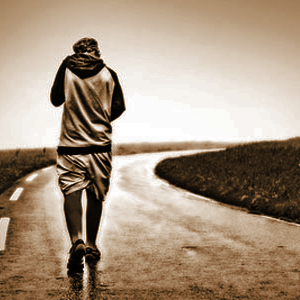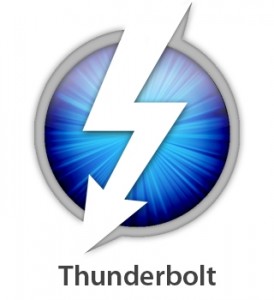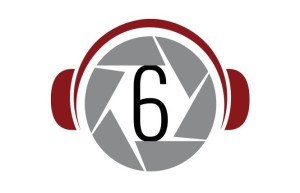World Cup 2010 – Groups Overview: Part Two
14 min read There are 8 different groups (group A – group H) parsed out to 4 teams from all different countries that qualified and they are drawn at random. In the next few months, I will analyze each of the groups with a quick synopsis of the teams and the common thought of who would move on and who would be packing for home in the first round of the tournament.
There are 8 different groups (group A – group H) parsed out to 4 teams from all different countries that qualified and they are drawn at random. In the next few months, I will analyze each of the groups with a quick synopsis of the teams and the common thought of who would move on and who would be packing for home in the first round of the tournament.
Group C:
England – (ENG)
Nickname: The Three Lions
It is a popular thought that England is the birth place of modern day soccer, though the sports origins have been recorded all throughout history. England is the oldest national team, along with Scotland, formed in 1870 and played their first game was played against Scotland in 1872, which ended in a tie. This was recorded as the first official international game played as the team was independently selected and operated, as opposed to the prior organization done by the federation. For the next forty years, England would play matches strictly between Scotland, Wales and Ireland, which was made more competitive with the formation of the British Home Championship that spanned from 1883 till 1984.
The English team has been a perennial powerhouse in the sport for many years that is now mired in conspiracy. It is rumored that Captain and center defender, John Terry, had a four month affair with the formal girlfriend of left fullback Wayne Bridge, who has since stepped down from the English national team. Head coach Fabio Capello removed the captaincy from John and assistant captain Roy Ferdinand has taken the captaincy. Fabio Capello had planned on continuing to play both players during the world cup, until Bridge removed himself from the team. It is unknown the extent of damage this affair, with the captain changing and a veteran defender removing himself from the team.
Another shot at the English hopes is the recent Achilles Tendon injury to former captain and veteran midfielder, David Beckham. With the loss of Wayne Bridge and the injury to David Beckham, things would seem to become more difficult for the English team. However, the team is filled with talent in the front with Wayne Rooney, Peter Crouch and Emile Heskey and has a strong midfield with, Steven Gerrard, Frank Lamard and speedster Shaun Wright-Phillips, the Three Lions should have enough talent to cover the injuries and scandals. Yet, the young and hungry US team poses England’s biggest challenge.
United States – (USA)
Nickname: The Yanks
Although the US soccer federation was formed in 1885, soccer has never been a popular sport in America. Playing in the first unofficial international soccer match outside of United Kingdom, the US played Canada, where they lost 1-0 in 1885. The following year, they exacted revenge, beating Canada 1-0 in Newark NJ. The US’s first official international match was against Sweden, where they won 3-2 in Stockholm Sweden. In 1930, the US played in the first World Cup, being credited with its first victory in the World Cup beating Belgium 3-0 while France played simultaneously against Mexico. US forward Bert Patenaude is recorded as the first player to score a hat-trick (three goals in the same game) in the World Cup knock out rounds, although this was disputed for many years, it was made official in 2006. In the 1950 World Cup, facing insurmountable odds, the US recorded what most believe to be the biggest upset in World Cup history, a 1-0 victory against England.
In the 1970’s soccer’s popularity began to grow with the growth of NASL (North American Soccer League), a league that brought some of the greats, like Pele, Franz Beckenbaur and George Best. However, with the over spending of the league drawing forth aging players for high prices, NASL suspended operations and eventually folded. In 1989, the US was named to host the 1994 World Cup amidst many who protested due to the weakness of the National team and the lack of a professional league in America. However, after their first international victory in over 2 years, the disparaging comments fell off. In the 94 World Cup, the US moved on to the knock out rounds, but lost to Brazil. The 98 World Cup saw the US losing all their games and, then coach Steve Sampson, received much criticism for the poor performance and the dropping of team captain John Harkes, showing that there seems to be a growing passion for the sport in America. Looking past the 98 debacle, the US moved on to their best showing in the 2002 World Cup. They made it to the quarter finals in South Korea. With great hopes, The Yanks did not meet to expectations as they faltered in the 2006 World Cup losing to the Czech Republic and Ghana, barely tying Italy.
As usual, the expectations are high for this new team, coached by a successful coach Bob Bradley. A growing professional league (MLS) in the US has proved the training ground for many of the US players and now they start overseas. Arguably one of the greatest American players, Landon Donovan, had seen great promise in the German professional leagues, but couldn’t break the first team. Now a current MLS player, he had thrived in Everton as he was on loan, where starting goalkeeper Tim Howard, who was a star as a keeper for the NY Metrostars(MLS). Injuries to veteran midfielder Clint Dempsy, defender Oguichi “Gooch” Onyewu, who have all returned to their respective league team, pose some questions. Waiting in the wings are young growing stars like Robbie Rodgers and Chris Pontius, eager for their chance to break the first team, while European playing Americans like Michael Bradly, the coach’s son, and young Joze Altidore provide more depth on the team. Along with England, The Yanks are expected to move on to the knock out rounds, though the Yanks could prove to be upstarts.
Slovenia (SVN)
Nickname: N/A
Formerly part of the Yugoslavian team, Slovenia played its first official match in 1992, after the split of Socialist Federal Republic of Yugoslavia. As part of the Yugoslavia, they had qualified eight times out of eighteen chances, for the World Cup. When they qualified, they reached the semi-finals twice, in 1930 and again in 1962. In 1992, the Yugoslavian team was suspended due to the Yugoslav Wars, which broke the team into multiple different nations. In 2000 Slovenia was a surprise qualifier to the UEFA European Championship tournament, although they did not win a game, they did tie their former countrymen Yugoslavia 3-3 and Norway 0-0 losing to soccer powerhouse Spain 2-1.
Success came to the Slovenian team when they qualified for the 2002 World Cup, beating Romania in a playoff match. Although they did not lose any games in their qualifying campaign, they left the World Cup with no wins. As such, they failed to qualify for the 2006 World Cup, though they were the only team to beat Italy during qualifying. In the qualifying process for the 2010 World Cup they came in second, above last World Cup power house Czech Republic, Northern Ireland, Poland and San Marino. However, they did not officially qualify. They had to play a playoff game against Russia, barely beating them out.
Although this being only their second World Cup appearance, the team is coached by former Yugoslavian player Matjaz Kek, who was known more for his leadership abilities rather than any extraordinary skills. The Slovenian’s success is attributed to the strength and spirit among the team, listening and believing what Matjaz Kek instructs them. That being said, there are some really talented players on this squad. Veteran and goal scoring leader, forward Milivoje Novakovic appears to be in his playing peak coming into this World Cup. Milivoje has stated that he makes up one third of the Slovenian backbone, along with goalkeeper Samir Handanovic and Captain Robert Koren. With a team that compromises many players from the premier leagues around the world, Slovenia has a strong desire to be the Cinderella team this World Cup. If the English and the US take this team lightly, they possibly could achieve that goal, with their spirit and determination. Yet, their inexperience may be their downfall in playing in a tournament where the world is watching.
Algeria (ALG)
Nickname: Les Fennecs (The Desert Foxes)
Making it to their third World Cup The Desert Foxes have broken a 24 year drought, having last made to the World Cup in 1982 and then in 1986. In both World Cups they were knocked out in the first round. Relatively a young federation they played in their first international game in 1957, beating Tunisia 2-1. However, they have also seen minor success in the African Cup of Nations, winning in 1990, the only year that they hosted the tournament.
Recently a great rivalry has been formed between Egypt and Algeria. In the last African Cup, Egypt won. Due to this, many reports came in regarding violence propagated by both supporters. Some reports were of Algerian supporters knifing Egyptian supporters, because Algeria moved on to the World Cup and Egypt didn’t. During the seven days of rioting, Egyptian president Hosni Mubarak came very close to sending his military into the Sudan, where the game between Egypt and Algeria was played. In a televised address to the Egyptian Parliament, he said “We don’t want to be drawn into impulsive reactions. I am agitated, too, but I restrain myself.” This incident turned bad so quickly that Libya’s Colonel Gaddafi was called in as an intermediary to broker a deal between the two countries.
The Desert Foxes plan on relying on defenders Nadir Belhadj, Antar Yahia and keeper, veteran Lounes Gaouaoui to support their strength, in the midfield. Algeria is being led by their captain Yazid Mansouri who is expected to direct the attack, while Karim Ziani and Mourad Meghni provide the sparks of danger from the midfield. A recent change of moving forward Karim Matmour to the right wing in the midfield has proven a good decision as Karim has shown more spark in that position rather than being up front. Currently, it is unsure if the coach Rabah Saadane (nicknamed ‘Cheik’ – the Wise) will bring back team leading goal scorer and most experience, Rafik Saifi. Although there is a healthy mix of European players on the team, inexperience and stronger squads with England and the US are hurdles that The Desert Foxes will struggle to overcome.
Group D
Germany (GER)
Nickname: Die Mannschaft (The Team)
From 1899 to 1901 selected teams in England and Germany played in five unofficial games, all leading to large defeats to Germany. Though, their first official match was played in 1908, against Switzerland, with the Swiss winning 5-3. 1912 Germany recorded its largest victory beating Russia 16-0. . The German team was banned from the 1938 World Cup, even though they had already qualified. Finding a loophole and since Germany “acquired” Austria, the Nazi politicians ordered five or six ex-Austrian players to join the German team, in a staged show of unity thus letting Germany participate in the 1938 World Cup.
West Germany, Saarland and East Germany were the official teams of the German federation. West Germany was re-instated by FIFA and the German Football Federation maintained and continued records for the West German Team. Turkey and Ireland were the first non German speaking nations to play West Germany in friendlies during 1951. With only 18 post war games under their belt, the West Germans qualified for the 1954 World Cup, winning their first World Cup title. 1974 saw West Germany as hosts to the World Cup and the West Germans went on to claim their second World Cup. In 1990, a boring final against Argentina saw West Germany win their third cup in becoming the first team to win the World Cup 3 times.
The Germans have always been seen as one of the world’s premier soccer teams, holding the record of 3 World Cups, tied now with Brazil and qualifying 17 times out of 19 attempts. A team filled with players from the German premier league, there are players like forward Miroslav Klose, recent call up, forward Lukas Podolski and midfielder and Captain Michael Ballack who have a knack of finding the back of the net. As such, the veteran defenders Phillipp Lahm and Arne Friedrich suggest strength on the back line. With these strengths, the Germans should easily take the top spot of this group.
Ghana (GHA)
Nickname: The Black Stars
Ghana used to play as the Gold Coast until 1957, when they gained independence from Great Britain. After their independence in 1957, the Ghana Amateur Football Association was formed and joined FIFA the following year. During the ‘60’s Ghana had great success, winning the Africans Cup in 1963 and in 1965 as well, winning by a record score of 13-0 over Kenya. The next two African Cups, they reached the finals and received the nickname “The Brazil of Africa”. During the 70’s, their success began to falter, failing to qualify in the next three successive African Cups. At the end of the 70’s, they won the African Cup for the third time and again, in 1982.
During the 80’s The Black Stars faced another drought. During this time, there were many internal issues between two members of the team, which caused government intervention to resolve these disputes. Many believe the dispute between Adebi “Pele” Ayew, considered the greatest Ghanaian player, and Anthony Yeboah, one of Ghana’s most prolific goal scorers, had caused the downfall of Ghanaian soccer and their inability to build with their youth teams success. Looking past this the youth squad went to the 2001 FIFA Youth Squad Championship finals and has grown to become the core team of The Black Stars. They took this success and qualified for the World Cup, for the first time in 2006 where they beat the US, Czech Republic and lost to Italy, then losing to Brazil 3-0 and being sent home.
To qualify for the World Cup, Ghana went undefeated in the first four games, to become the first African team to qualify for the World Cup. Although he’s not the Captain, Ghana will need the experience of Chelsea great midfielder Michael Essien for his ability to manage the game. Midfielders Stephen Appiah and Sully Muntari should provide the starting point of the attack while John Mensah provides protection in the defense for veteran goalkeeper Richard Kingston. Looking to continue their recent success, The Black Stars have a strong squad that has played together for a while and should prove stronger than Australia or Serbia, and move on to the knock out rounds.
Serbia (SRB)
Nickname: Beli Orlovi (White Eagles)
From 1919 to 1921 the Serbian national team existed but was enveloped as part of the Yugoslavian team from 1921 on through to 1992. Similar to Slovakia, they seceded from Yugoslavia during the Yugoslavian Wars in 1992, forming the Federal Republic of Yugoslavia. However, unlike Slovakia, the Serbian Federation was a member of FIFA since 1921 and a UEFA member since its creation in 1954, so they were immediately recognized as a new team and inherited the full status of records and achievements from Yugoslavia, meaning, they did not have to re-apply to gain FIFA and UEFA status.
Although they were granted full FIFA and UEFA status, they were still banned from all international sporting events and did not play its first international match until 1994 which played a team from Brazil, Porto Alegre, which they defeated 2-0. This was the first time that the team played with players that were strictly from Serbia and Montenegro, playing as Yugoslavia. Due to UN international sanctions because of the Yugoslavian war, the White Eagles were not allowed to participate in the 1994 World Cup, nor the 1996 UEFA Euros. Qualifying for the 1998 World Cup, Yugoslavia was thought to be a surprise. Performing to expectations, the soccer gods felt finicky and they lost to Holland 2-1, exiting the World Cup earlier than they expected. In 2000 Yugoslavia played Croatia, another team from the original Yugoslavia, for the first time, in which they won 4-1. Not able to build on the hopeful dreams from 2000, they failed to qualify for the 2002 World Cup. In 2004, the newly formed Serbian team again failed to qualify for the Euros.
Qualifying for the 2010 World Cup has seen some solid performances, which have resulted in victories. Most notably is a victory over France. However, Serbia has a rough road to travel if they are to move onwards into the knock out stages. With the German powerhouse favored in the group and the young Ghanians, who are favored as well, Serbia has to play a solid full 90+ minutes. Players like midfielder, Milan Jovanovic, who scored 5 goals in the road to qualifying, veteran captain Dejan Stankovic, holding in the midfield and top goal scorer, forward Nikola Zigic, all is not lost. Serbia could prove to be sleepers in this tournament.
Australia (AUS)
Nickname: Socceroos
In 1922, the first Australian national team was formed for a tour of New Zealand, where they lost twice and barely managed a tie. For the next 25 years, they played in numerous test matches, or friendlies, against New Zealand, China and South Africa. Even though they were a fairly isolated country, they managed to play some diversified teams, but its location continued to hold them back for the next 80 years.
1974 saw the first Socceroos appearance in the World Cup; and last until 2006. The Socceroos endured a lot of travel on the road to the 1974 World Cup, when they played away matches in Iraq, New Zealand and in Indonesia. Having to play their chief rivals, Iraq twice and South Korea twice, they managed to move on to the World Cup in 1974. For the next 32 years, the Socceroos were known for their attempts and near misses to qualify for the World Cup. To qualify for the World Cup in 1994, Australia had to play in 3 playoff stages. Although they won their group undefeated, they had to play New Zealand, where they won twice, with a combined score of 4-0. Next they had to play Canada in a playoff, where they scraped out a victory beating Canada in a shootout 4-1. Lastly, they had to play Argentina, the first game ended in a 1-1 draw. Hopes were high for the Socceroos, but were dashed by Argentina, who won the second game 1-0. Argentinian legend Diego Maradona was quoted as saying to, then Australian captain Paul Wade, “Your tears of pain will one day be tears of joy.”
Although they qualified for the 2006 World Cup, it was not without controversy. After their first match against Japan, the Japanese federation laid claims that the Socceroos were guilty of “a lot of dirty fouls” and that they targeted the ankles. However, after further review of the script it revealed that there were misinterpretations by the western media. Some believe this was to spice up the competition. Hours before Australia’s second game, against reigning champions Brazil, a British newspaper stated that several Australian players placed bets among themselves, going against FIFA rules. The bets were found to be amongst just the players and not with bookies, all charges were dropped. In the last game of the first round against Italy, the Socceroos showed great form, holding the Italian powerhouse without a goal until a controversial call ended the dreams of those from the land down under. In the waning seconds of the game, Fabio Grosso was “tripped” by Lucas Neill in the penalty box and Italy went ahead 1-0 at the 95th minute of the game. Seconds later, the game was over.
The ending of the 2006 World Cup left a bad taste in Australia’s collective mouth. The coach, Guus Hiddink, resigned in protest and moved to coach Russia. Returning players from the 2006 World Cup, like Midfielder Tim Cahill, forward Harry Kewell and defender, Lucas Neill look to change the luck of the Socceroos. There could be upsets in the making with a determined squad of Australia. Though, having to get through Germany, Ghana, Serbia and the unshakeable bad luck could prove to be a difficult uphill battle.
Stay tuned for an overview of Groups E & F coming soon!
by Jason Campbell
_____________________________________________
Related Article:
World Cup 2010 – Groups Overview: Part One







Bigger than the Olympics…
Just a warning to your readers: I traveled to SA in Feb 2010 and booked a car to be collected on arrival at Cape Town International Airport. On arrival the car hire company told me my credit card could not be accepted because the numbers on the card in not embossed (stand out). They promptly refused to rent me a car and after inquiring at all the car rental companies I was given the same answer. Apparently SA is so behind the times that they can not do electronic transactions. They need a card that they can swipe on a paper document or else they refuse to help you. My credit card is an electronic credit card, I have used it in the US for car hire, even in Namibia. Only in SA I was refused and found myself stuck at the airport and my whole trip without transport. I would appreciate if you could warn your readers about this.